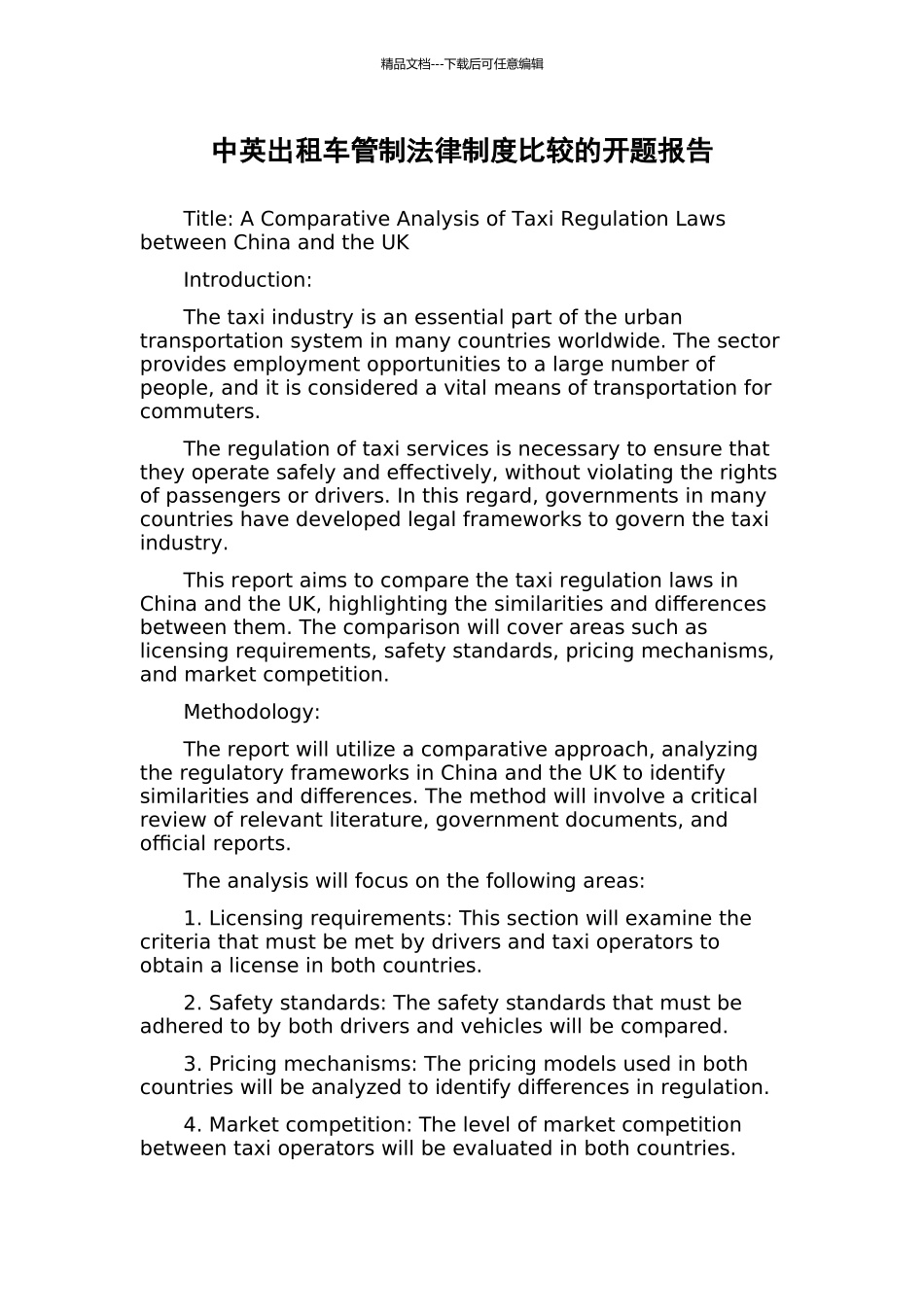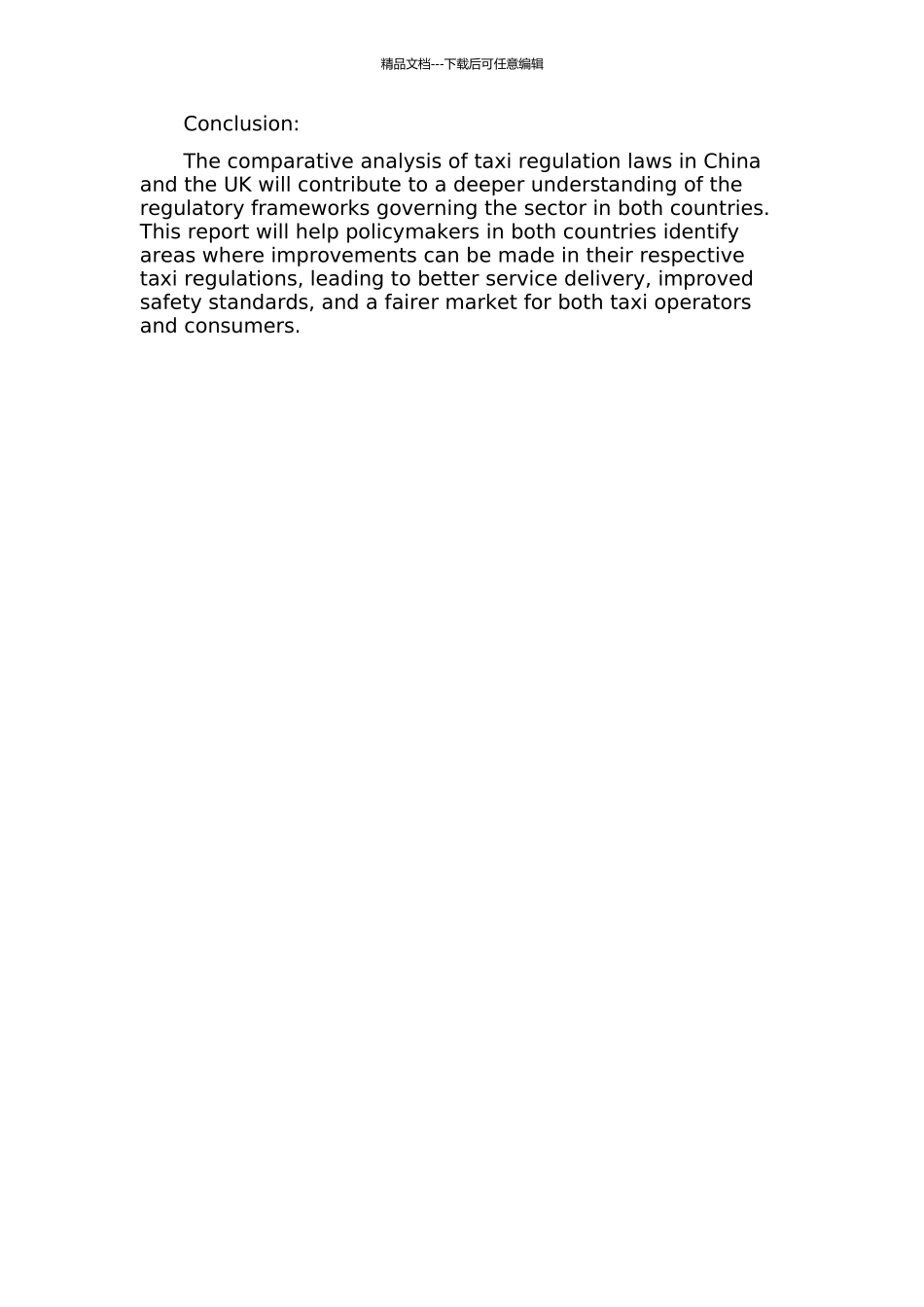精品文档---下载后可任意编辑中英出租车管制法律制度比较的开题报告Title: A Comparative Analysis of Taxi Regulation Laws between China and the UKIntroduction: The taxi industry is an essential part of the urban transportation system in many countries worldwide. The sector provides employment opportunities to a large number of people, and it is considered a vital means of transportation for commuters.The regulation of taxi services is necessary to ensure that they operate safely and effectively, without violating the rights of passengers or drivers. In this regard, governments in many countries have developed legal frameworks to govern the taxi industry.This report aims to compare the taxi regulation laws in China and the UK, highlighting the similarities and differences between them. The comparison will cover areas such as licensing requirements, safety standards, pricing mechanisms, and market competition.Methodology:The report will utilize a comparative approach, analyzing the regulatory frameworks in China and the UK to identify similarities and differences. The method will involve a critical review of relevant literature, government documents, and official reports.The analysis will focus on the following areas: 1. Licensing requirements: This section will examine the criteria that must be met by drivers and taxi operators to obtain a license in both countries. 2. Safety standards: The safety standards that must be adhered to by both drivers and vehicles will be compared. 3. Pricing mechanisms: The pricing models used in both countries will be analyzed to identify differences in regulation. 4. Market competition: The level of market competition between taxi operators will be evaluated in both countries. 精品文档---下载后可任意编辑Conclusion: The comparative analysis of taxi regulation laws in China and the UK will contribute to a deeper understanding of the regulatory frameworks governing the sector in both countries. This report will help policymakers in both countries identify areas where improvements can be made in their respective taxi regulations, leading to better service delivery, improved safety standards, and a fairer market for both taxi operators and consumers.

